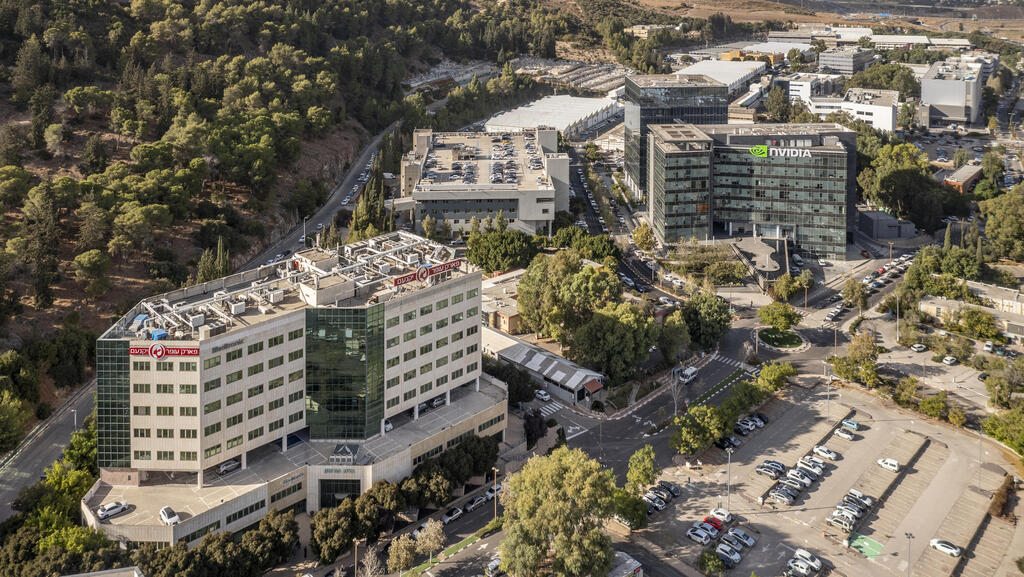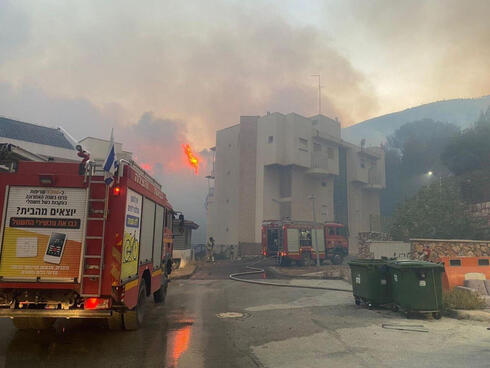
"Growing high-tech is essential for the economy of the North"
Israeli-High Tech Association CEO Maya Schwartz, who originally hails from the Golan Heights, spoke to CTech about the impact of the war on the tech industry in Israel’s north and the importance of supporting it amid Israel’s war with Hezbollah
The impact of October 7 and Israel's ongoing war against Hezbollah has been profoundly destabilizing for the economy and tech ecosystem in Israel’s North. Once a burgeoning hub for innovation, particularly in foodtech and agritech, the region has seen significant disruptions due to the constant bombardment of rockets and anti-tank missiles by the Lebanese terrorist group for more than nine months. The continuous attacks have led to the evacuation and internal displacement of approximately 60,000 residents from the towns and villages along Israel’s northern border for close to a year.
This has, in turn, led to the crippling of the local economy and destruction of many businesses including halting the momentum of numerous startups and established companies. The once-thriving tech communities in cities like Haifa and Yokneam now face the daunting task of rebuilding amidst ongoing uncertainty and no clear end to the hostilities in sight.
For Maya Schwartz, the CEO of the Israeli High-Tech Association that is part of industrialists' association who was born and raised in the Golan Heights, the impact on the area has been especially difficult to witness. "Everything that I know, all that I am, is from \[the North\]. My heart is there. If you’re not there you can’t understand what it’s like,” she says.
This is far from the first time that Schwartz, like all northern residents, has experienced bombardment from Hezbollah. During the Second Lebanon War in 2006, Schwartz, who was pregnant at the time and still living in the region, endured the harrowing experience of rockets falling. This was before Israel had the Iron Dome air defense system to provide warnings or to intercept missiles. She fled after two weeks.
Related articles:
Even before the current war, Israel’s Northern region has long faced significant economic challenges and a dearth of job opportunities, driving many young people to migrate to Tel Aviv’s high-tech ecosystem and other central cities where innovation thrives, and career prospects are more abundant. "I left the Golan at 18 because of job prospects," she says. She went on to study engineering, specializing in robotics and artificial intelligence, working in a number of startups and tech companies before being appointed CEO of the Israeli High-Tech Association in 2022.
In the last several years, however, the North has transformed into a vibrant tech ecosystem, with Haifa and Yokneam serving as regional hubs with many companies and startups. Kiryat Shmona has served as the hub for Israel’s growing food tech industry. “So many founders have moved there, and there’s a real industry. It's become a really important tech ecosystem and extremely impressive, but everything has been broken since October 7,” says Schwartz, who has committed much of her professional career to advancing the economy and tech industry in her home region, which she says is of greater importance now more than ever.
“We need to support and strengthen them. Growing high-tech is essential for the economy of the North. They need a safe place to live in order for the industry to thrive and to incentivize people to remain,” she says, highlighting the importance of maintaining and supporting the industry.
"We’ve worked with many companies based in Tel Aviv who have given offices to northern companies who have been displaced. But it’s still painful because most of them don’t want to go to the center - they want to be in the North. So, we’re trying to support both those who go to the center and those who stay, but companies need to be given financial support to do so.”
Schwartz highlights the need for comprehensive support, from providing safe spaces to advocating for high-tech interests in the Knesset. "We go to hearings at the Knesset to discuss the importance of supporting high-tech in the north," she notes. This advocacy aims to ensure that the region receives the necessary resources and attention to rebuild and thrive.
"The support that they’re getting isn’t enough, so we bring MKs to the North to meet with companies and we attend Knesset meetings to discuss the significance of supporting high-tech in the North."
As the CEO of the Israeli High-Tech Association, which seeks to support and advocate on behalf of the Israeli tech industry both domestically and internationally, Schwartz continues to work behind the scenes, facilitating connections between investors and startups, advocating for government support, and ensuring that high-tech companies have the resources they need to succeed.
Schwartz stepped into her role during a period marked by significant upheaval, including the global tech slowdown, the judicial reform and the recent October 7 conflict. "Our main challenge is to represent the interests of Israeli high-tech," she emphasizes. The association's mission extends beyond national borders, engaging in international forums to advocate for Israel’s industry.
Despite the current crisis, Schwartz believes in the resilience and innovative spirit of Israeli high-tech, including and especially in the north. "In all of history, everyone has tried to kill us, but we survive and thrive," she asserts. "We deal with crises, and I have no doubt that we will emerge from this one too."


